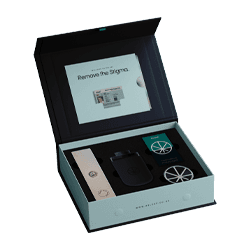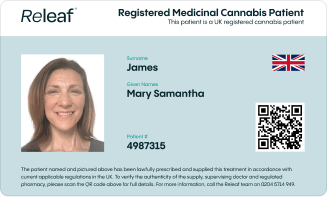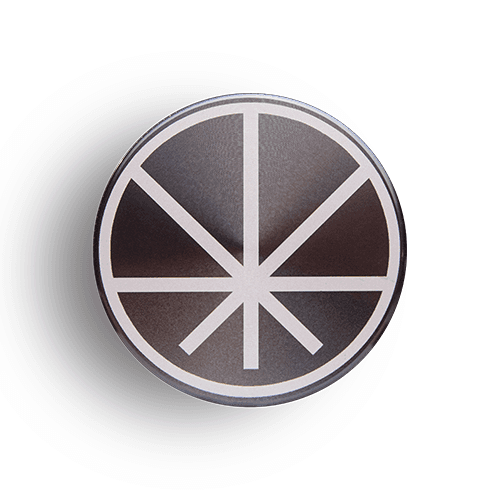PTSD can be extremely difficult to live with, resulting in a diverse range of severe symptoms including panic attacks, mood swings, insomnia and physical symptoms including chest and stomach pains.
Numerous studies have shown that medical cannabis administration may help to reduce the severity of PTSD symptoms, aiding those with the condition in their long-term recovery.
But what is it about this plant that makes it so potentially effective in mitigating the symptoms of PTSD? In order to explore the efficacy of cannabis therapy, we need to look at the chemical compounds within this plant, known as cannabinoids, and how they interact with the body’s complex systems of signals and receptors.
How do cannabinoids work?
Cannabinoids influence the body’s endocannabinoid system (ECS). Although medical science did not start to fully explore this system until the 1980s and ‘90s, it is actually the body’s largest receptor system, not just in humans but all mammals. Endocannabinoid receptors are located within the brain, throughout the central nervous system and within the cells of our vital organs.
As such, the endocannabinoid system regulates many of our most essential bodily processes and defences, from immune function and inflammation to mood and libido to metabolism and growth.
Cannabinoids bind to receptors in the brain and elsewhere in the central nervous system to affect the ways in which cells communicate with one another. Outcomes of this can be far-ranging from blocking pain signals to aiding sleep, reducing inflammation or improving appetite.
Because cannabinoids can exert such a powerful influence over the body’s endocannabinoid system, they can play a substantial role in mitigating the impact of PTSD symptoms on daily life.
What are the symptoms of PTSD?
PTSD is highly subjective, and every individual impacted by the condition will experience it differently. The symptoms can be both extremely diverse and highly debilitating, manifesting in a number of different ways. These may include:
- Vivid flashbacks or nightmares that cause one to relive past trauma
- Intrusive thoughts and mental images
- Hyperarousal and panic attacks
- Insomnia
- Inability to concentrate or focus
- Irritability and mood swings
- Depression and emotional numbness
- Social withdrawal and self-isolation
- Physical sensations such as chest and stomach pains, nausea and trembling
PTSD and cannabinoids: Which are the most effective?
Within the cannabis plant, there are hundreds (possibly thousands) of chemical compounds including cannabinoids, terpenes, and flavonoids. These interact with one another as well as the body’s endocannabinoid system in ways that may prove therapeutic for those with PTSD. While there are many cannabinoids within the cannabis plant, the two most noteworthy in relation to PTSD are cannabidiol (CBD) and tetrahydrocannabinol (THC).
CBD
Recent studies suggest that CBD may benefit those afflicted by PTSD in a number of ways. It has a proven anxiolytic effect, helping to relieve the anxiety and hyper-arousal that often come with the condition. Studies show that CBD therapy can also reduce the severity of intrusive thoughts and aid restful sleep. CBD is readily tolerated by the body and has no psychoactive effects, making it a good option for those with busy lifestyles. What’s more, there’s a growing number of products on the market made with good quality full-spectrum CBD oil from sublingual drops to teabags, edibles and gummies.
THC
THC is the intoxicating cannabinoid found in the cannabis plant, and is responsible for the euphoric or energised feelings that can come with medicinal cannabis application. THC is not beneficial for those with PTSD when consumed in large doses. This is because high concentrations of THC may cause short-term paranoia and exacerbate PTSD symptoms. There is, however, evidence to suggest that when consumed in small doses alongside higher concentrations of CBD, THC can aid restfulness and sleep.
Terpenes and cannabinoids: Explaining the entourage effect
Cannabinoids are not the only compounds within the cannabis plant that can aid recovery from PTSD. Terpenes also play a part by combining with cannabinoids and creating an entourage effect.
Terpenes such as pinene, linalool, and limonene may enhance the therapeutic effects of cannabinoids while also reducing the risks of unwanted side effects such as paranoia.
Finding the right cannabinoid balance for PTSD
There are many strains of medicinal cannabis, and each contains slightly different concentrations of CBD, THC and other cannabinoids as well as varying terpene profiles. At Releaf, we take a highly personalised approach with our subscription service, taking the time to get to know the individual’s medical needs and matching carefully-curated strains to each person’s symptoms.
Releaf understands the importance of medical cannabis in treating various medical conditions. With our tailored monthly packages, specialist consultations for medical cannabis, and a unique medical cannabis card for protection, you can access the treatment you require without worrying about the stigma.





